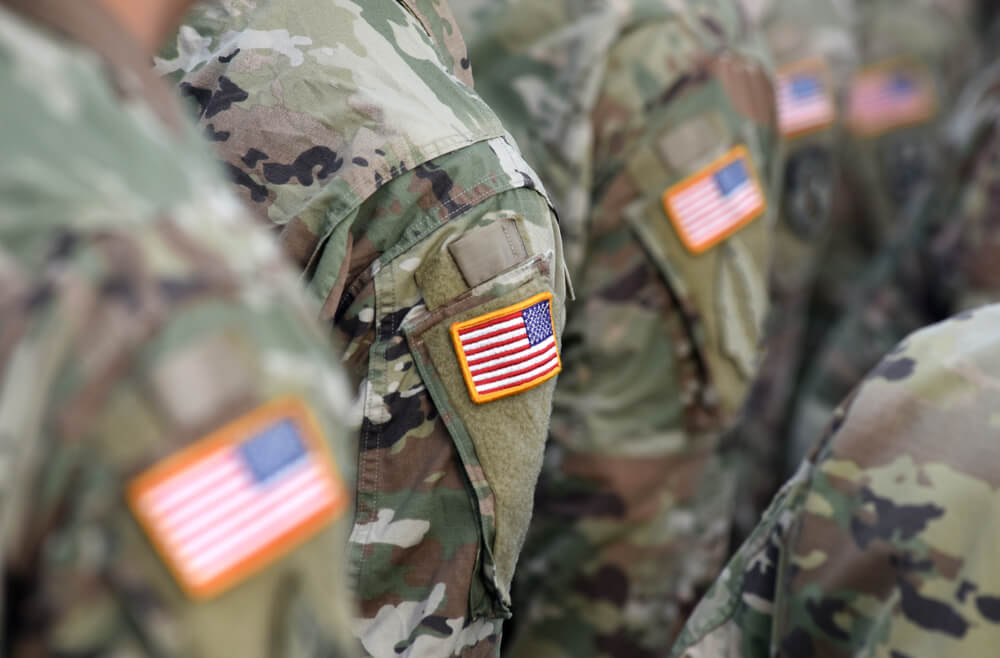Help for Our Veterans: Florida Drug Rehab That Accepts Tricare

What Is Tricare Coverage?
If you or a loved one is a veteran of the U.S. armed forces and struggling with a drug or alcohol addiction, you might not be sure where to turn. You recognize that you need help, but you’re not sure that just any treatment facility will do. You need one specializing in veterans and understanding the special circumstances that may have led to your substance use disorder. Fortunately, treatment for veterans is available, and clinical staff has experience serving veterans and their needs.
Tricare unites military healthcare resources with civilian networks to serve active duty service members and their families, the National Guard members and their families, as well as veterans and retirees, their survivors, and some former spouses.
It’s not Medicare or Medicaid, but a separate system for those serving or serving in the military. Care is provided through military hospitals and medical offices, civilian providers, and non-network providers that Tricare has authorized to provide health care.
Depending on the service that employed you, you’re eligible for one of many different Tricare plans. They all provide you with health care services no matter where you’re located.
Does Tricare Cover Drug Rehab?
If you’re searching for a drug rehab that accepts Tricare, understand that it covers mental health services, including substance use disorders. In general, you’re covered for the standard levels of care. Therapy and counseling are included in Tricare for both individual and group sessions. You’re also covered for some of the services included in residential facilities, such as art or recreational therapy. When medication-assisted therapy is necessary, you’re covered for that too. Opioid disorder treatment often involves using medications to help you handle your cravings for the drugs.
In addition to substance use disorder, many veterans also struggle with co-occurring disorders such as depression and PTSD (post-traumatic stress disorder). A drug rehab that accepts Tricare will cover these issues as well. Typically you’ll need to detox from the substance first before the staff can treat you for any mental health issues. You can’t heal from those if you don’t get clean first.
Detox
Depending on how long and how heavily you used the drug, a medical detox could be necessary for you to get clean. Withdrawals from drugs and alcohol can be painful when you try to detox cold turkey on your own. While the symptoms will go away (even without treatment) in a week or two, you might find the process so miserable that you go back to the substance before you can get clean.
With medically assisted detox, you’ll be supervised in case any of your symptoms suddenly get severe. You’ll also be much more comfortable as you taper off the drugs. This type of detox is the first step for many veterans in dropping their drugs and alcohol dependencies.
Inpatient
A residential treatment facility is highly structured, so you don’t get too hungry, angry, lonely, tired, or bored. The structure of inpatient care helps you get back on track with living a full life after you’ve detoxed. You’ll usually eat meals with the rest of the clients, and mornings and afternoons typically are for therapy, both group, and individual. You’ll have some evening time for hobbies and activities after dinner.
Being in rehab takes you away from the people, places, and things that you associate with using. You can build healthy habits and spend your days focused only on your own sobriety. If that seems selfish, remember what the (civilian) flight attendants tell you to do on the airplane: put your own oxygen mask on first. If you can’t breathe, you can’t help anyone else.
It’s important to get clean from a substance use disorder and address the reasons behind your use before you can help or serve anyone else. You’ll learn (or relearn) healthy habits that keep you sober and ways to deal with stress. If you’ve also got a co-occurring mental health issue, you can also treat that.
Outpatient
Some veterans may be able to go directly to outpatient care if they haven’t been using long or heavily and their underlying health is good. Otherwise, you might graduate from an inpatient program and then transition to outpatient.
A partial hospitalization plan means spending some of your days in the treatment program, attending counseling, and improving your life skills. If you’re in an intensive outpatient program (IOP), you’ll spend a bit less time in treatment, and generally, you’ll generally receive it either after working hours or on the weekends. General outpatient programs are even fewer hours and help you plan for your transition to a life of recovery.
 Other Factors in Tricare Coverage for Rehab
Other Factors in Tricare Coverage for Rehab
You’re not alone if you’re a veteran with a substance use disorder. Addiction is an unfortunately common problem and is usually a symptom of something else rather than the disease itself. It’s not unusual for veterans to try to numb painful emotions and trauma due to the terrible war scenes they’ve witnessed, sexual harassment or assault, and the stress that comes with serving their country.
PTSD survivors often relive the event through flashbacks, vivid mental images, and loud or abrupt sounds or touches. Addiction or reliance on numbing your emotions becomes the norm without therapy to work through the trauma so that it no longer affects you so drastically. Or your doctor may have prescribed drugs such as benzodiazepines (benzos) to help you lessen the anxiety, only for you to end up dependent on them.
Military members are often injured while on active duty and get painkillers prescribed so they can get on with service. In general, these medications are highly addictive, and as time goes by and you continue to take the meds, you may develop a tolerance and need more and more of the drug to achieve the same effects. It’s easy to become dependent on the euphoria you feel when you get enough of the drug.
If you’ve started (or continued) to drink to keep painful emotions at bay, you have a lot of company. Over half of the veterans who seek help have a drinking problem. Alcohol is a relatively cheap way to get the desired effects, and you don’t need a prescription for it.
However, a pickled liver may be the least of your problems if you drink long enough. Alcohol withdrawal can potentially be fatal if you get the DTs (delirium tremens).
Veterans with substance use disorders need compassionate help from people who understand what veterans have been through and have expertise in treating both drug and alcohol addiction and co-occurring disorders.
Learn how common it is to recover from meth addiction here:
WhiteSands: A Rehab Facility That Accepts Tricare and Specializes in Helping Veterans
At WhiteSands, we understand that you’ve been through a lot and that’s likely factored into your substance use disorder. We let you lead the therapy discussions, so you don’t have to talk about anything that you don’t want to talk about in that session.
We use trauma-informed therapy, which recognizes trauma’s role in addictions and avoids retraumatizing you during recovery. Our clinical staff treats you with compassion and dignity while you’re in our care because we believe the best success comes from keeping you comfortable and reclaiming your sense of self.
You’ll enjoy private rooms and the ability to stay in contact with your family and friends, with staff nearby in case this triggers you in some way. Our athletic facilities are state-of-the-art and feature personal trainers and a boxing gym to help you get in shape and blow off steam. Our addiction treatment programs focus on life skills so you can manage your stress and frustration when you’re in long-term recovery instead of reaching for drugs or alcohol.
Contact us today and get started living the life you deserve after serving our country.
If you or a loved one needs help with abuse and/or treatment, please call the WhiteSands Treatment at (877) 855-3470. Our addiction specialists can assess your recovery needs and help you get the addiction treatment that provides the best chance for your long-term recovery.
 Other Factors in Tricare Coverage for Rehab
Other Factors in Tricare Coverage for Rehab